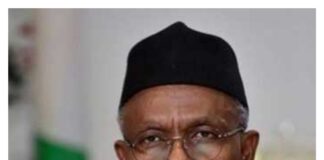The outlawed Indigenous People of Biafra (IPOB) is listed among the 20 deadliest terror groups in the world, even as the impact of terrorism has continued to decline in Nigeria, according to the 2023 Global Terrorism Index (GTI) report.
Nigeria is now in the eighth position globally, among the countries that have been hard hit by terrorism in 2022, according to the report. Nigeria had occupied the sixth position in last year’s report and was in the third position for more than three years before last year.
Afghanistan, for the fourth consecutive year, is the country most impacted by terrorism, followed by three African countries – Burkina Faso (second position), Somalia (third) and Mali (fourth).
Syria is in the fifth position, while Pakistan is sixth, and Iraq, seventh.
After Nigeria, Myanmar (Burma) comes next in the ninth position, while Nigeria’s neighbour, Niger Republic, is ranked 10th, among the countries hard hit by terrorism in 2022.
The GTI report, released on Tuesday, is in its 10th edition. It tracks terrorism incidents across the world.
It is produced by the Institute for Economics & Peace, an independent, non-partisan, non-profit think tank which is headquartered in Sydney, Australia.
The GTI report placed IPOB in the 10th position among the deadliest terror groups in the world, while Islamic State, operating around Iraq and Syria, is top on the list.
Islamic State West Africa (ISWA), occupying a sixth position on the global scale, is ranked as the deadliest terror group in Nigeria, followed by Boko Haram, which is the seventh on the global scale.
“The Indigenous People of Biafra (IPOB), designated as a terrorist group by the Nigerian government in 2017, recorded their deadliest year in 2022. They were responsible for 40 attacks and 57 deaths in 2022, an increase from 26 attacks and 34 deaths the year prior,” the report said.
IPOB is leading the agitation for the independent state of Biafra, which it wants carved out of the Igbo speaking south-east region and some parts of South-south Nigeria.
Last year’s GTI report attributed the increase in attacks on police and other security agencies in Nigeria to clashes between law enforcement and IPOB.
“Law enforcement, including police and prison officers overtook both military and civilians as the most targeted group of 2021. Attacks against police and prisons increased substantially from one recorded attack in 2020 to 75 in 2021, accounting for over a third of all attacks in Nigeria in 2021.
“This was largely driven by an increase in clashes between law enforcement and separatist groups, such as the Indigenous People of Biafra (IPOB).”
The IPOB leader, Nnamdi Kanu is detained in Abuja, accused of terrorism.
Decrease in attacks, deaths
“The impact of terrorism continues to decline in Nigeria; with total deaths falling by 23 per cent, decreasing from 497 in 2021 to 385 in 2022. The number of terrorist attacks in Nigeria also fell considerably, with 120 incidents recorded in 2022 compared to 214 in 2021. This is the lowest number of terror attacks and deaths since 2011,” the report said.
However, the military overtook law enforcement as the most targeted group in 2022, the report said.
“Military personnel were targeted in a quarter of all attacks, followed by civilians at 24 per cent, and law enforcement at 18 per cent.
“Despite this, half of all terrorism deaths in Nigeria in 2022 were civilians. Civilian deaths increased 78 per cent from 2021 to 196 deaths; while military deaths dropped considerably, falling 74 per cent from 2021 to 58 deaths in 2022.”
Continuing, the report said, “ISWA’s lethality rate increased for the first time in two years, from just over three deaths per attack in 2021 to 3.7 deaths per attack in 2022.
“ISWA recorded its lowest number of attacks and deaths since 2020, at 57 attacks and 211 deaths in 2022, a decline of 28 per cent in attacks and 13 per cent for deaths when compared to the previous year.
“The lethality of ISWA’s attacks increased for the first time in two years, from just over three deaths per attack in 2021 to almost 3.6 deaths per attack in 2022.”
Boko Haram
“Boko Haram’s attacks almost halved within the last year, while deaths attributed to the group increased slightly from 69 in 2021 to 72 in 2022. This is the lowest number of attacks by the group for over a decade,” the report said.
“Boko Haram’s decline has resulted in a substantial improvement in terrorism in Borno State, which experienced a decrease of 12 per cent in terrorism-related deaths when compared with the year prior. Attacks in the state also decreased from 91 to 48 respectively, a decrease of 47 per cent.”
“The conflict between ISWA and Boko Haram that culminated in the death of Boko Haram leader Abubakar Shekau in May 2021, continued into 2022. Severe defeats, mass defections of operatives to ISWA, as well as counter-terrorism efforts by the Nigerian government and foreign military forces, have significantly weakened Boko Haram’s impact in Nigeria. As a result, ISWA has become significantly stronger and continues to expand its area of activity in north-eastern Nigeria and the Lake Chad region,” the report said.
The worst terror attack in Nigeria in 2022 occurred on 22 May in Borno State when gunmen shot dead 50 civilians. ISWA, which claimed responsibility for the attack, accused the victims of monitoring their movement and reporting the same to the security agencies.
Premium Times NG















